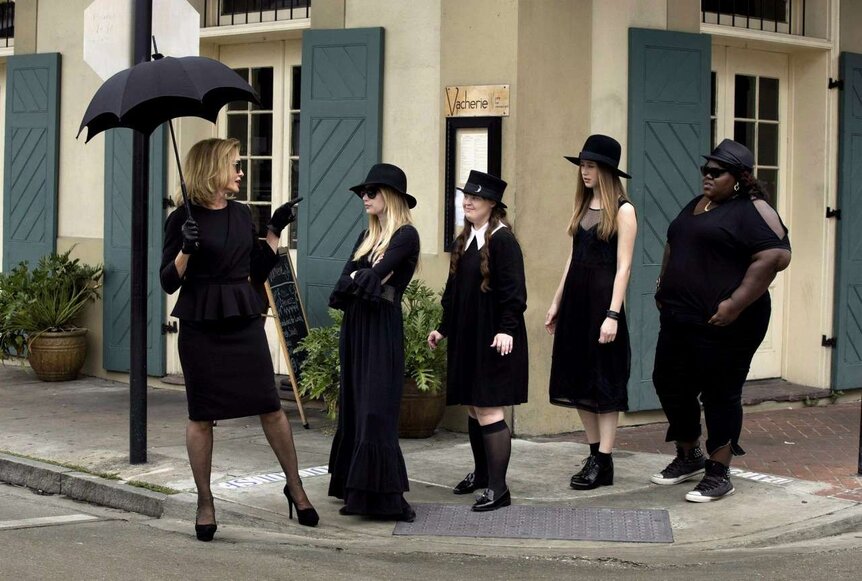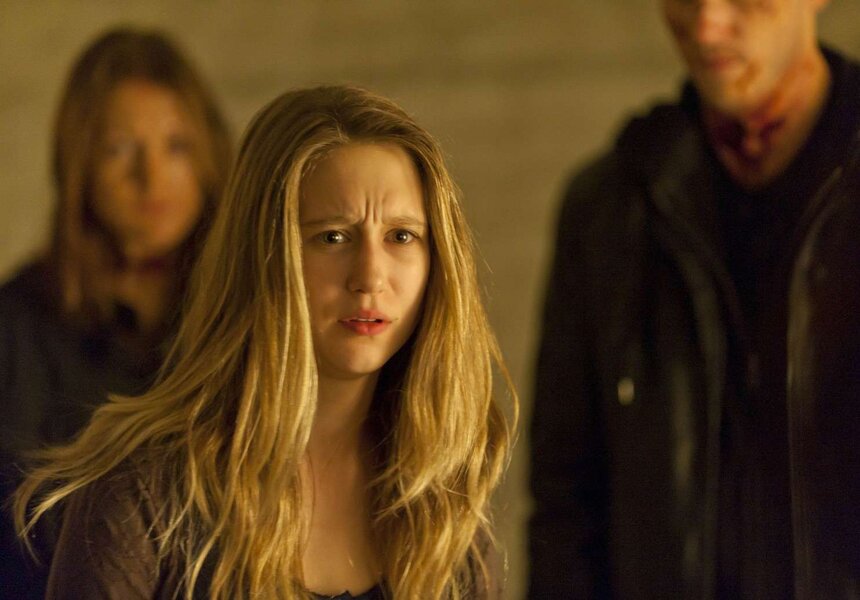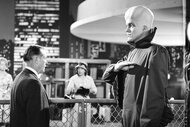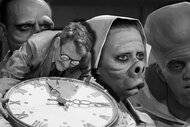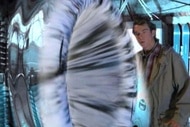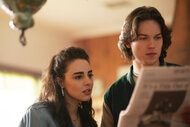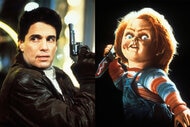Create a free profile to get unlimited access to exclusive videos, sweepstakes, and more!
American Horror Story’s scariest stories have always been its most human ones
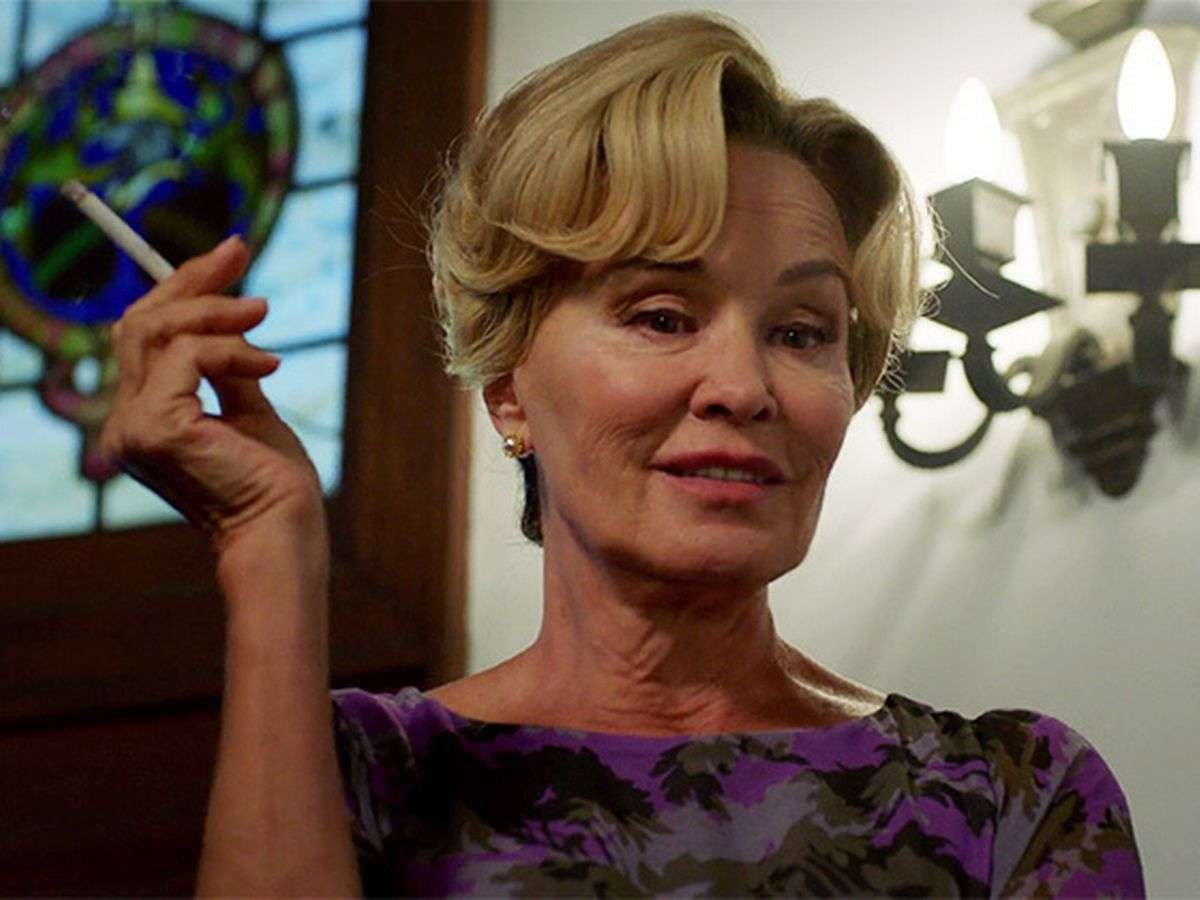
Ryan Murphy's American Horror Story franchise is known for many things, including its frequently bonkers plot twists, gruesome death scenes, A-list celebrity cameos, and campy, over-the-top style. An anthology series that changes its settings and stories each season but tends to rely on the same stable of core performers, the show's constantly shifting framework allows it to explore many facets of evil, from the theological to the supernatural and everything in between.
Over its nine seasons to date, the show has tackled stories about ghosts, vampires, witches, aliens, serial murderers, and even the occasional Nazi. Individual seasons have been framed as everything from a reality television series to a 1980s slasher flick, a simple ghost story to a complex commentary on the current state of American politics. But no matter what its setting might happen to be, at the end of the day American Horror Story remains one of the most compelling series on television because it recognizes a simple truth: The most frightening forms of evil are the ones that look just like us.
Back in the second season, known as Asylum, Sister Jude Martin, the stern head nun in charge of Briarcliff Hospital ominously remarks that "all monsters are human." One of the best-known quotes from the series, that comment has gone on to adorn various forms of AHS merchandise and Hot Topic gear in the years since. But the thing is, Jude is 100% right.
American Horror Story may be more popularly known for things like the mysterious Rubber Man from Murder House, the terrifying clown from Freak Show, or the literal Antichrist that appears in Apocalypse, but a big part of the reason people keep coming back to this series is that no matter how bizarre or bloody it gets, we can still see ourselves in it.
Whether we're talking about a dangerously superpowered witch who fears losing her beauty and power (Coven), a nun who tortures others as a way of exorcising her own demons (Asylum), a woman who wants to punish the society that threw her out (Roanoke), or a Jill Stein voter who allows her phobias to turn her into precisely the thing she fears most (Cult), the protagonists of every AHS season are people before they are — or ever were — monsters, and it doesn't always feel like they're that different from us when you take a moment to look at them in the light.
But nowhere is this trend more evident than in the series' first season, and the story that ultimately sets up everything that comes after it. Murder House is, at its heart, a fairly traditional haunted house story, even as it uses horror tropes to tell the story of a family torn apart by infidelity, death, and grief. The ghosts and memories that live in the Harmon home are all the result of very human failings, and the family they haunt has more than their share of personal demons.
The show is as focused on present-day problems such as Ben Harmon's infidelity and Constance's Langdon's abusive relationships with her children, as it is with the grisly historical crimes that bookend each installment (which run the gamut from the infamous Black Dahlia case to child murder).
The Harmons' daughter Violet spends much of the season struggling to deal with the emotional fallout from her parents' marriage woes while suffering from clinical depression and suicidal urges. She's drawn to the darkness of the house because it mirrors the same darkness that she sees in herself every day. On paper, Tate Langdon is straight-up nightmare fuel: The architect of a deadly school shooting, a rapist, and the father of the Antichrist to boot, he definitely deserves to spend his afterlife in misery.
Yet, American Horror Story allows us to see him as a three-dimensional figure — without ever making light of his crimes or suggesting that he was some sort of hero. His feelings for Violet may be as twisted as everything else about him — but that doesn't make them any less real or recognizable. A love story between a psychotic ghost and a dead girl who doesn't realize that she committed suicide is twisted, to be sure. But those are the sort of stories this show excels at telling.
Then, of course, there's Tate's mother, Constance. She's done truly awful things — murdered her husband and his mistress, abused her kids in a variety of creatively horrifying ways, manipulated others to commit crimes on her behalf, and stole a baby from a dead woman. Yet, Constance has also lived a life full of broken dreams and lost hopes, from her dead-end career to her unsatisfying marriage. Instead, her story is filled with ghosts, sorrow, and a quartet of dead children she can't let go of. (Literally.) She's admittedly a mother of monsters, but she has become so as a result of her own choices, and there's both tragedy and horror in that.
The plot of the series' first season not only helps shape all the installments of AHS that follow, but it ultimately gives rise to the central tale in Apocalypse — a story that takes place seven seasons later. In it, Constance's grandson grows up to be the Antichrist and she must face her own culpability in fostering the thing he's become. This eighth season, a dystopian crossover that involves characters from both Murder House and Coven facing down the literal end of the world, is emotionally fulfilling despite its fantastical premise. Not because it's particularly probable or even especially scary, but because it draws familiar threads together that ultimately make the series existing story richer.
It allows Constance to (at least somewhat) redeem her previous actions by attempting to be a better mother to Michael than she had been to her own children and turning him out when she realizes he is beyond saving. Her decision to ultimately take her own life, so that she might stay with her ghostly family in the Murder House — and also spare Michael from inevitably killing her — is a perfectly dark coda to her story.
Apocalypse also resolves the relationship between Murder House's Tate and Violet — though your mileage may vary on whether it's an ending that Tate himself has earned — and (sort of) redeems Coven fan-favorite Madison Montgomery, all messy, morally gray people who probably didn't deserve second chances, but (sort of) got them anyway.
But that's the kind of show American Horror Story is, a story that regularly features murder clowns and cannibals, but still realizes that no matter how outlandish its stories become (looking at you, Hotel), its most compelling tales are always grounded in the human conflicts that gave rise to those creatures in the first place. In the end, we do make our own monsters, after all.
